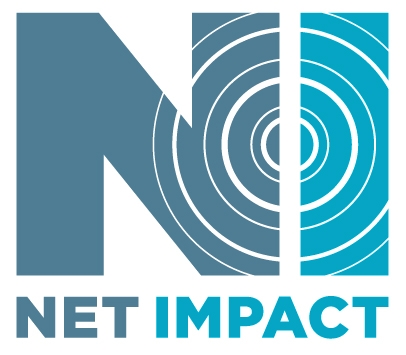So You Want to Be a CSR Director?
/ This past weekend over 2,400 MBA students, CSR professionals and social entrepreneurs congregated on the campus of Cornell University for the 2009 Net Impact Conference.
This past weekend over 2,400 MBA students, CSR professionals and social entrepreneurs congregated on the campus of Cornell University for the 2009 Net Impact Conference.
For those of you not “in the know,” Net Impact is an international network of people looking to use their business skills to create global social change.
I’ve been a member of Net Impact for a few years now, and I have to say that attending their annual conference is a must (if you’re not a member, I highly encourage you to join).
When I attended last year as a first year MBA, I remember feeling overwhelmed by all of the new ideas, terminology and opinions swirling around in the air. This time though, as a second year student, I felt much more grounded and less inundated, which made it possible to simply enjoy the opportunity to learn, connect with colleagues and friends, and share ideas around CSR and sustainability.
Perhaps because it’s the topic most on my brain these days, but a lot of the panels I attended were somehow related to careers in CSR. I went to a couple of especially terrific sessions that I just know the readers of The Changebase will enjoy, so I thought I’d share what I learned over the course of a couple of blog posts.
This post centers around one panel I attended called “Developing CSR Competencies”. Moderated by Chris Pinney, director of research and policy at Boston College Center for Corporate Citizenship, this session highlighted recent research that BCCCC had just completed with the Hay Group, a global management consulting firm.
The research they did focused on the specific individual competencies that CSR directors need to have in order to be successful in their jobs. To add value to the report’s findings, the panel included three current CSR directors who were interviewed for the study:
- Dan Bross, Senior Director of Global Corporate Citizenship, Microsoft Corporation
- Valerie Smith, VP of Corporate Responsibility, Citigroup
- Dave Stangis, VP of Corporate Social Responsibility, Campbell Soup Company (follow Dave on Twitter here).
Chris opened up the panel by introducing a few important points which are worth repeating here:
- Each company does CSR differently – so the job functions of a CSR director will vary.
- Most CSR teams are incredibly small – for instance, the group at Campbell Soup is only 1 ½ people!
- Not surprisingly, therefore, these jobs are incredibly hard to come by – especially for folks who aren’t already internal employees at the company.
After this, he went on to outline the research findings. In general, 8 key competencies emerged as the "keys to success" for any CSR director.
Personal Maturity (aka: Humility): this basically comes down to your ability to achieve success through empowering others to be part of the process – and then letting them take the credit. All three panelists agreed letting other people shine (and thus staying out of the spotlight yourself) is an acceptable trade-off for seeing your program reach its milestones.
Optimistic Passion: this competency relates to your ability to get out of bed everyday feeling motivated about your work. It’s about being patient, resilient, and dedicated to making change. Perhaps the best part of the panel was when Dave from Campbell Soup strongly opposed this phrase ‘optimistic passion’ (two words that he did not believe described himself or his work). Yet the more he explained why he opposed the phrase, the more passionate he seemed!
Next up was Peripheral Vision and Systems Perspective: two traits that refer to your ability to understand how your work in CSR relates to various business units within your company as well as to society as a whole. Once you understand this, the next step is being able to translate these ideas to other stakeholders. Essentially, it’s how well you can see the forest through the trees – and then tell others about what that forest looks like.
After that was Visionary Thinking: a skill that forces you to look beyond that pile of “to-do’s” on your desk and think instead about how you can bring innovation and fresh ideas to your work.
Two other competencies that I particularly enjoyed were Collaborative Networking and Strategic Influencing: these attributes relate to how well you engage others in your work, ask for help when you need it, and get buy-in from key decision-makers. Dan from Microsoft brought up a particularly interesting point about the role of trust in strategic influence – without instilling in your colleagues the feeling that they can trust you, you’ll never be able to persuade them to help you.
Finally, and perhaps most important, you need to be a Change Driver: with such small teams and such big jobs, you must be the one leading the charge and taking initiative to get results.
I found all of these traits to be incredibly interesting – and truthfully a little daunting.
To be a really good CSR director, it turns out you have to be a bit of a superhero!
But the more I heard the panelists speak about their experiences, the more excited I felt about the opportunity to one day join their ranks.
At the end of the session there was still one final question that I felt needed to be answered:
With all of this emphasis on individual competencies, I wondered what it was about the panelists' specific organizations that perhaps nurtured their ability to be successful in their jobs?
Was it simply a case of just having these competencies and jumping in with both feet? Or did their company's culture, values or even governance structure have something to do with their success?
Interestingly, the panelists seemed to agree that in fact it’s the individual’s ability to bring these skills to the table that sets them apart. While some organizations may have value systems or missions that make it easier to succeed, the panelists believed that true success in these positions is based on your ability to think big yet stay grounded, to include various stakeholders in a collaborative process, and to strategically enlist the help of champions to promote and evangelize your cause.
Overall it was an incredibly valuable afternoon and I learned a lot. Thank you Chris, Dan, Valerie and Dave for sharing your insights with us!
Stay tuned to future posts on The Changebase to hear more about what I learned at Net Impact 2009…
In the meantime, ask yourself: what are you doing right now to develop each of these competencies yourself?


